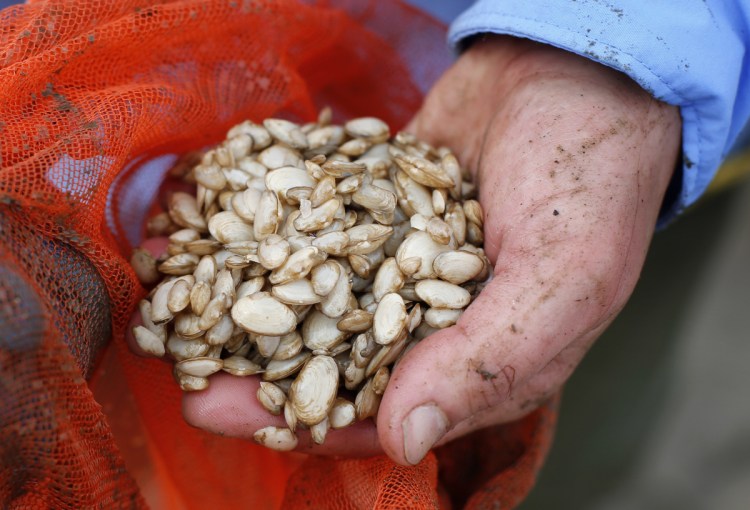Maine clammers are already feeling the consequences of climate change. The Gulf of Maine’s warming spurred invasions from green crabs – vicious clam predators – damaging Maine’s soft-shell clam populations and leading to the proposition of clam farming (“As clam harvesting declines, could farming be the answer?” June 3).
Though clam farming specifically helps conserve clams, it overlooks the true issue: climate change. To truly protect Maine’s soft-shell clams, the jobs of Maine’s 1,700 soft-shell clam harvesters and the fried clam baskets I’ve loved to eat since I was 2, we must recognize this link to climate change and work together to mitigate it.
The Gulf of Maine has warmed at four times the global average rate for the last 30 years, according to Andrew Pershing of the Gulf of Maine Research Institute, creating its now green-crab-friendly temperature. Therefore, focusing solely on clams misses the true issue.
Though farming can work as a conservation strategy (if people make money from cultivating an animal, people will want to keep the animal alive), people are not the ones ravaging soft-shell clam populations – green crabs are. Using farming to create monetary incentives to conserve clams will encourage nets and other clam-protection mechanisms, but it won’t reduce the hungry green crabs that are flocking to Maine and it certainly won’t combat climate change.
Clammers join a growing list of communities hurt by climate change. If each community enacts solutions to only their own issues, they may find temporary relief until another issue arises. Every community affected by climate change must join forces and share stories like this one, for, through unity, we can create large-scale permanent solutions.
Ethan Brown
Toxics Action Center
Portland
Send questions/comments to the editors.



Comments are no longer available on this story